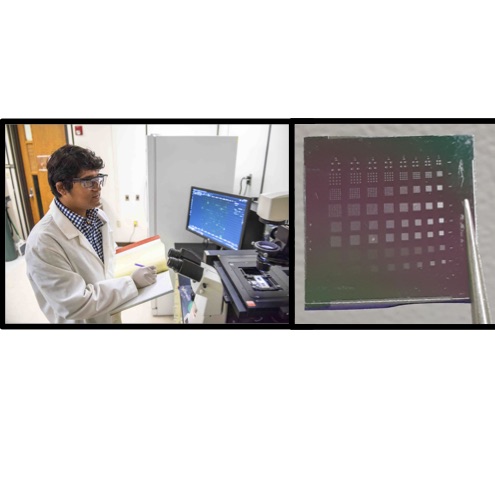January 20, 2021
New technology platform enables rapid discovery of microbial interactions

Microbial ecosystems contain thousands of types of bacteria that co-exist and interact with each other in different manners.
In a recent manuscript published in Frontiers of Microbiology, K-State engineers and biologists describe a new technology platform that can be used to rapidly discover collections of bacteria that enhance the survival and growth of other highly beneficial bacteria. The technology is called the Microwell Recovery Array and is a miniaturized, lab-on-a-chip device. The device uses small wells to combine a beneficial bacteria with different bacteria from environmental samples such as soil or plant root; the device then isolates the sample that had the highest impact on the beneficial organism. The device screens thousands of different collections of bacteria all at once, dramatically increasing the pace of discovery.
The collaborative research was led by Ryan Hansen, assistant professor in the Tim Taylor Department of Chemical Engineering, and Tom Platt, assistant professor in the Division of Biology. The work was in collaboration with Oak Ridge National Laboratory and industry partners Powers & Zahr and was supported by the National Science Foundation and the U.S. Department of Energy.
"Generally, interactions between bacteria are poorly understood in many different environments and this device has unique potential to improve this understanding," Hansen said. "Moving forward, this technology will be useful for the study of bacterial ecology in gut, soil, and plant root microbiomes. We also expect the technology will aid in the development of bioinoculant and probiotic formulations and in discovery of new antibiotics."
The research team is currently applying this technique to develop formulations of bacteria that can be used as biofertilizers or biocontrol agents for sustainable corn production.
